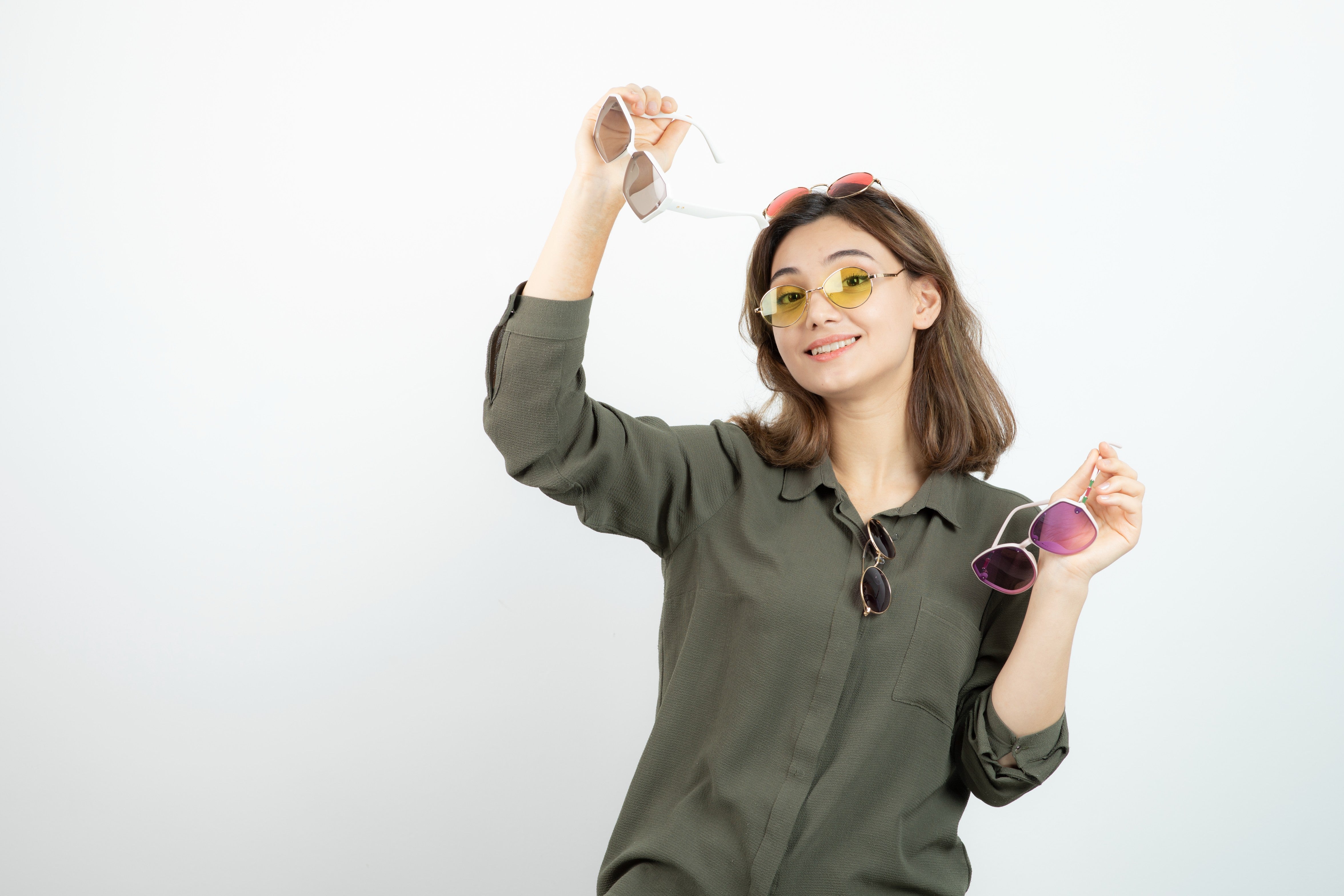The need to wear sunglasses is often overlooked. We shield our skin. We protect our face. But our eyes often suffer. Glare strains our vision; wind dries our eyes. The sun's rays can cause long-term damage. So, sunglasses are not just about style anymore but your eye health
This blog lists the benefits of wearing sunglasses, especially in summer and answers the most common question: why sunglasses are essential for eye health.
How Do the Sun Rays Impact Your Eyes?
The sun sends forth ultraviolet radiation which includes UVA, UVB and UVC. They penetrate delicate eye tissues and cause long-term damage. They also increase the risk of developing cataracts.
While extremely strong sunlight causes photokeratitis - sunburn of the eye.
Additionally, glare strains can lead to headaches & fatigue.
Benefits of Sunglasses for Better Eye Health
Sunglasses are a fashion accessory yet a necessity. So, try to find a balance between style and safety keeping in mind the following:
1. Protection Against UV Rays
Think of a high-quality pair of sunglasses as a shield for your eyes. They stop UVA and UVB rays & keep your eyes healthy. They ensure your vision stays clear.
2. Prevention of Photokeratitis
Too much UV light causes Photokeratitis which is quite painful. It is the inflammation of the cornea which causes redness of eyes & blurry vision. Good sunglasses with adequate UV protection create a barrier and help you avoid unnecessary pain.
3. Reduction of Cataract Risk
Too much sun over the years can lead to cataracts which make your eye lens cloudy. But good sunglasses help cut down that risk. They keep your vision clear even as you get older.
4. Protection Against AMD
Long-term UV exposure is also linked to Age-related Macular Degeneration (AMD). This disease damages the central vision. When your eyes get shielded with sunglasses, the likelihood of this condition reduces.
5. Minimized Squinting
Intense light from the sun makes you squint. This causes eye strain & brings on headaches. Purchasing sunglasses in your preferred lens color prevents this.
6. Glare Reduction
Buy tinted sunglasses with polarized or mirrored lenses. They help cut down on how much the sun's brightness bothers your eyes. This improves visual clarity.
Polarized lenses enhance contrast in low light. This allows you to see more clearly and enhance visual comfort. Especially during city and highway driving, on the beachside, in hilly regions and while playing water sports.
7. Protection from Wind & Dust
Sunglasses protect your eyes from wind & keep out dust and debris. They prevent irritation and do not let the eyes get dry.
How to Choose the Right Sunglasses For Eye Health
-
Buy UV blocking sunglasses. That means both UVA and UVB. So, check those labels. Make sure they say 100% UV protection or UV 400.
-
Find the right pair that is stylish and frames your face well.
-
Reconsider your lifestyle & indoor-outdoor activities to decide which lenses will help in day-to-day life and which are more suited to trekking or rowing.
Does age matter when it comes to sun protection for eyes?
Well, it certainly does.
Children are more vulnerable & sensitive as their eyes are still developing. They spend more time outdoors thus, exposure to UV radiation adds up. Vision Council data indicates that nearly 43 percent of sports-related eye injuries involve children under the age of 15.
Likewise, eye health becomes crucial after the age of 45 due to possibilities of cataract, glaucoma & AMD.
As per Center for Disease Protection & Control (CDC), approximately 1 million eye injuries occur each year, and 90% of these injuries are preventable. More than half (52%) of all patients treated for eye injuries are between ages 18 and 45.
It is clear that sunglasses are a necessity for people of all age groups.
Frequently Asked Questions (FAQ)
1. How do polarized lenses differ from regular sunglasses?
Ans. Polarized lenses are special sunglasses designed to reduce glare which is caused by reflective surfaces. For example, light reflecting off water or shiny surfaces. Regular sunglasses do not offer this.
2. Are expensive sunglasses necessarily better for my eye health?
Ans. Not really! While purchasing a pair of sunglasses, look for the label that indicates they offer UV protection.
3. How often should I have my eyes examined?
Ans. Get an eye exam every one to two years. Regular checkups will help catch any problems early on.
4. I wear prescription glasses. Can I still benefit from sunglasses?
Yes, definitely! You can even get prescription sunglasses made from R Kumar.

Share:
Advantages of Prescription Sunglasses for Children